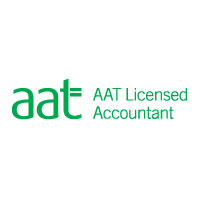UPDATE
Wherever you are working from right now, I’d like to wish you all the best for the coming weeks. This isn’t easy. My best advice is to stay in touch with your family and friends, so that isolation isn’t mentally isolating.
The ever changing environment in which we all find ourselves is unprecedented. I have tried to gather important information as below from reputable sources to assist you in your businesses, regardless of size.
The information below does not cover every aspect and there will be questions as we all have our own situations that differ, but please rest assured that we are trying to keep ahead of the assistance out there and we will advise you when we can.
(right click and open links where available)
Support for businesses through deferring VAT and Income Tax payments
Support businesses by deferring Valued Added Tax (VAT) payments for 3 months. If you’re self-employed, Income Tax payments due in July 2020 under the Self-Assessment system will be deferred to January 2021.
VAT
For VAT, the deferral will apply from 20 March 2020 until 30 June 2020.
Eligibility
All UK businesses are eligible.
How to access the scheme
This is an automatic offer with no applications required. Businesses will not need to make a VAT payment during this period. Taxpayers will be given until the end of the 2020 to 2021 tax year to pay any liabilities that have accumulated during the deferral period. Any deferred VAT is then due by 31 March 2021. (31/3/21).
VAT refunds and reclaims will be paid by the government as normal.
Some questions will arise and my guess at the answers:-
- Will I still have to submit on time ? Yes
- If I am late submitting will the normal surcharges regulations apply? Yes, unless there is a reason in relation to situation (likely to be quite easy to argue for some)
- I get refunds, will they still come at the expected time (like normal) Yes, although may be slower than normal
- I pay by direct debit, do I cancel it and have to reset it up again after? Hopefully not
- I want pay my VAT can I still do that? Yes if you want, just pay to HMRC bank with VAT number as reference like normal
Income Tax
For Income Tax Self-Assessment, payments due on the 31 July 2020 will be deferred until the 31 January 2021.
Eligibility
If you are self-employed you are eligible.
How to access the scheme
This is an automatic offer with no applications required.
No penalties or interest for late payment will be charged in the deferral period.
HMRC have also scaled up their Time to Pay offer to all firms and individuals who are in temporary financial distress as a result of Covid-19 and have outstanding tax liabilities.
(cont)
SSP (EMPLOYEES AND EMPLOYERS
This section covers recovering wages under the grant scheme.
Staying at home
If you have symptoms of coronavirus infection (COVID-19), however mild, stay at home and do not leave your house for 7 days from when your symptoms started.
If you live with others and you are the first in the household to have symptoms of coronavirus, then you must stay at home for 7 days, but all other household members who remain well must stay at home and not leave the house for 14 days. The 14-day period starts from the day when the first person in the house became ill.
See the stay at home guidance for more information.
Sick pay
You can get £94.25 per week Statutory Sick Pay (SSP) if you’re too ill to work. It’s paid by your employer for up to 28 weeks.
If you are staying at home because of COVID-19 you can now claim SSP. This includes individuals who are caring for people in the same household and therefore have been advised to do a household quarantine.
To check your sick pay entitlement, you should talk to your employer, and visit the Statutory Sick Pay (SSP) page for more information.
(cont)
SSP start date
We are legislating for SSP to be paid from day 1, rather than day 4, of your absence from work if you are absent from work due to sickness or need to stay at home due to COVID-19. Once the legislation has been passed, this will apply retrospectively from 13 March. You should talk to your employer if you are eligible for SSP and need to claim.
Proof of sickness
If you have COVID-19 or are advised to stay at home, you can get an ‘isolation note’ by visiting NHS 111 online, rather than visiting a doctor. For COVID-19 cases this replaces the usual need to provide a ‘fit note’ (sometimes called a ‘sick note’) after 7 days of sickness absence.
Isolation notes will also be accepted by Jobcentre Plus as evidence of your inability to attend.
If you’re self-employed or not eligible for SSP
If you are not eligible for SSP – for example if you are self-employed or earning below the Lower Earnings Limit of £118 per week – and you have COVID-19 or are advised to stay at home, you can now more easily make a claim for Universal Credit or new style Employment and Support Allowance.
If you are eligible for new style Employment and Support Allowance, it will now be payable from day 1 of sickness, rather than day 8, if you have COVID-19 or are advised to stay at home.
(cont)
Furloughed workers
If your employer cannot cover staff costs due to COVID-19, they may be able to access support to continue paying part of your wage, to avoid redundancies.
If your employer intends to access the Coronavirus Job Retention Scheme, they will discuss with you becoming classified as a furloughed worker. This would mean that you are kept on your employer’s payroll, rather than being laid off.
To qualify for this scheme, you should not undertake work for them while you are furloughed. This will allow your employer to claim a grant of up to 80% of your wage for all employment costs, up to a cap of £2,500 per month.
You will remain employed while furloughed. Your employer could choose to fund the differences between this payment and your salary, but does not have to.
If your salary is reduced as a result of these changes, you may be eligible for support through the welfare system, including Universal Credit.
We intend for the Coronavirus Job Retention Scheme to run for at least 3 months from 1 March 2020, but will extend if necessary.
Claiming benefits
Whether you are currently in or out of work, if you are on a low income and affected by the economic impacts of COVID-19, you will be able to access the full range of the welfare system, including Universal Credit.
From 6 April we are increasing the standard allowance in Universal Credit and the basic element in Working Tax Credit for 1 year. Both will increase by £20 per week on top of planned annual uprating. This will apply to all new and existing Universal Credit claimants and to existing Working Tax Credit claimants.
If you have COVID-19 or are staying at home
You are now able to claim Universal Credit, and if required can access advance payments upfront without needing to attend a jobcentre.
If you are self-employed
You are able to claim Universal Credit, providing you meet the usual eligibility criteria.
To support you with the economic impact of the outbreak, and allow you to follow government guidance on self-isolation and social distancing, from 6 April the requirements of the Minimum Income Floor will be temporarily relaxed. This change will apply to all Universal Credit claimants and will last for the duration of the outbreak.
New claimants will not need to attend the jobcentre to demonstrate gainful self-employment.
Support for rent costs
You should check your eligibility for Universal Credit, which is available for people in and out of work. Support for rental costs will be paid through Universal Credit.
From April, we are increasing Local Housing Allowance rates to the 30th percentile of market rents. This applies to all private renters who are new or existing Universal Credit housing element claimants and to existing Housing Benefit claimants.
(cont)
LOANS & FINANCE
The Coronavirus Business Interruption Loan Scheme (CBILS) will provide government-backed loans of up to £5m to small and medium-sized businesses (SMEs) with turnover up to £45m.
The Bank of England’s Covid Corporate Financing Facility will provide a quick and cost-effective way to raise working capital for larger businesses who need it.
This is backed by a government advertising and communications campaign across TV, radio and social media to ensure that businesses are aware of the support available during the coronavirus crisis.
The SME Coronavirus Business Interruption Loan Scheme is now available for applications. Businesses should talk to their current bank lenders about using the scheme, which is provided by the British Business Bank.
This scheme will help any viable business with a turnover of up to £45m to access government-backed finance of up to £5m.
Interest payments and any lender-levied fees for businesses will be covered by the government for an initial period of up to 12 months.
The government will provide lenders with a guarantee of 80% on each facility to give lenders further confidence in continuing to provide finance to SMEs.
The scheme is available through more than 40 accredited lenders, which are listed on the British Business Bank website and include all the major high street banks, including Barclays, HSBC and NatWest, and is supported by a number of professional bodies including ICAEW, ICAS and ACCA.
- For qualifying criteria and repayment terms, read below:-
Eligibility criteria
To be eligible for support, the small business must:
- be UK based, with turnover of no more than £45m per annum;
- operate within an eligible industrial sector (a small number of industrial sectors are not eligible for support or subject to limitations);
- have to confirm that they have not received de minimis state aid beyond €200,000 equivalent over the current and previous two fiscal years [EU state aid competition rules]; and
- be unable to meet a lender’s normal lending requirements for a fully commercial loan or other facility, but would be considered viable in the longer term.
Finance terms will be available from three months up to 10 years for term loans and asset finance, and up to three years for revolving facilities and invoice finance.
The scheme provides the lender with a government-backed guarantee against the outstanding facility balance, potentially enabling a ‘no’ credit decision from a lender to become a ‘yes’. The borrower always remains 100% liable for the debt.
The government will also cover the first 12 months of interest payments, increased from the original six-month period announced in the Budget on 11 March. The business remains liable for repayments of the capital.
The scheme will be provided by the British Business Bank through participating providers, and will offer more attractive terms for both businesses applying for new facilities and lenders, with the aim of supporting the continued provision of finance to UK businesses during the covid-19 outbreak.
The scheme will support a range of business finance products, including term facilities, overdrafts, invoice finance facilities and asset finance facilities.
The British Business Bank statement stated: ‘To apply for an CBILS-backed facility, businesses may wish to consider approaching one or more participating lenders to discuss their borrowing needs.’
Full eligibility criteria will be published when the scheme goes live week commencing 23 March 2020’.
ICAEW, ICAS, ACCA, Responsible Finance, UK Finance and NACFB are stakeholder partners in the scheme.
State aid rules are designed to prevent the distortion of competition and trade across EU member states.
Source: https://www.accountancydaily.co/coronavirus-business-interruption-loan-scheme-hiked-ps5m
How to access the scheme
The scheme will be available early in week beginning 23 March 2020.
We will provide information on how to access the scheme here shortly. source: https://www.gov.uk/government/publications/guidance-to-employers-and-businesses-about-covid-19/covid-19-support-for-businesses
(cont)
Support for businesses that pay little or no business rates
The government will provide additional Small Business Grant Scheme funding for local authorities to support small businesses that already pay little or no business rates because of small business rate relief (SBBR), rural rate relief (RRR) and tapered relief. This will provide a one-off grant of £10,000 to eligible businesses to help meet their ongoing business costs.
Eligibility
You are eligible if:
- your business is based in England
- you are a small business and already receive SBBR and/or RRR
- you are a business that occupies property
How to access the scheme
You do not need to do anything. Your local authority will write to you if you are eligible for this grant.
Guidance for local authorities on the scheme will be provided shortly.
Any enquiries on eligibility for, or provision of, the reliefs and grants should be directed to the relevant local authority.
Support for businesses paying tax: Time to Pay service
All businesses and self-employed people in financial distress, and with outstanding tax liabilities, may be eligible to receive support with their tax affairs through HMRC’s Time To Pay service.
These arrangements are agreed on a case-by-case basis and are tailored to individual circumstances and liabilities.
Eligibility
You are eligible if your business:
- pays tax to the UK government
- has outstanding tax liabilities
How to access the scheme
If you have missed a tax payment or you might miss your next payment due to COVID-19, please call HMRC’s dedicated helpline: 0800 0159 559.
If you’re worried about a future payment, please call us nearer the time. Opening hours are Monday to Friday 8am to 8pm, and Saturday 8am to 4pm. The helpline will not be available on Bank Holidays.
All news
 Dawn Johnson is licensed and regulated by AAT under licence number 126542.
Dawn Johnson is licensed and regulated by AAT under licence number 126542.
